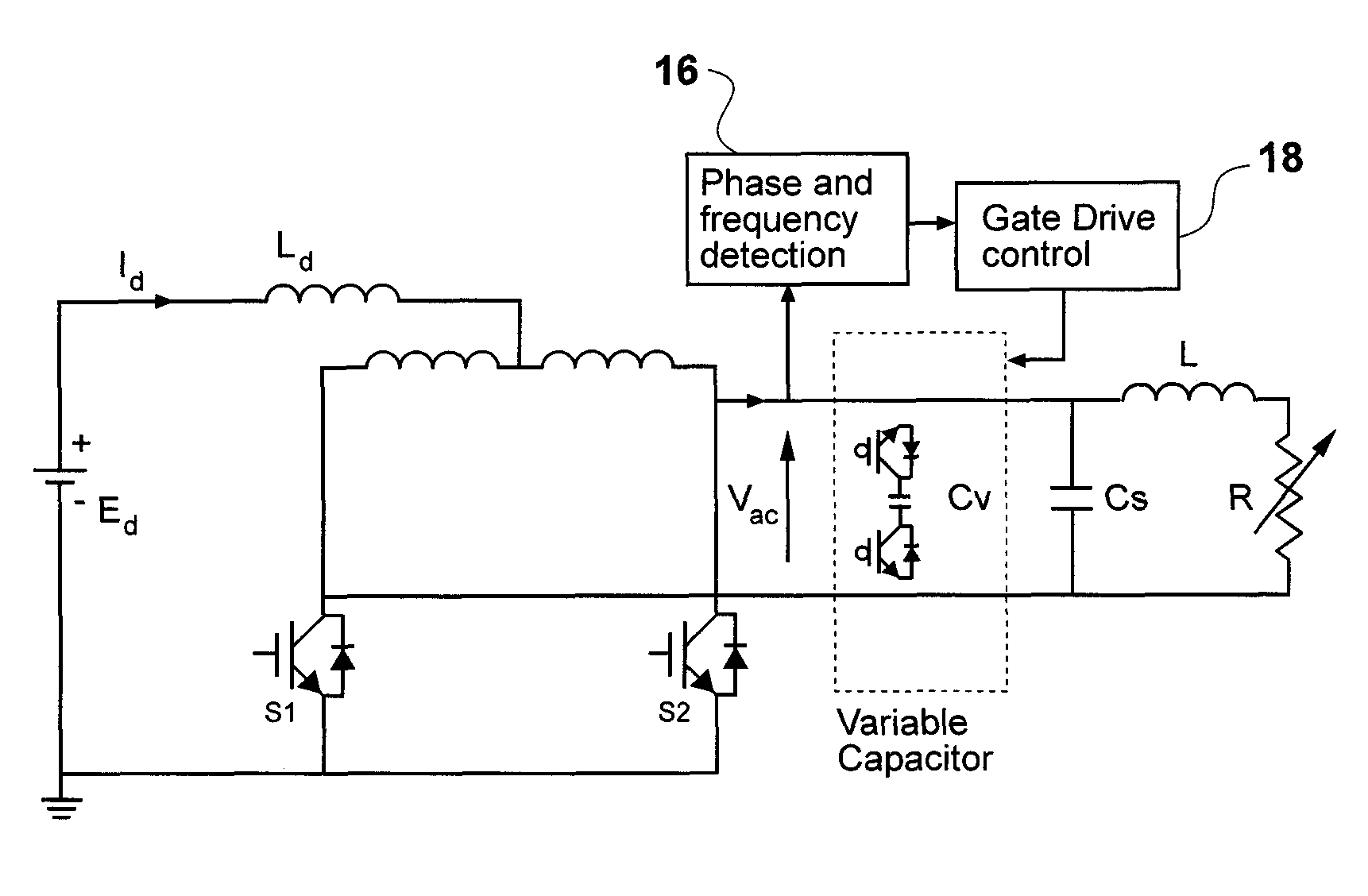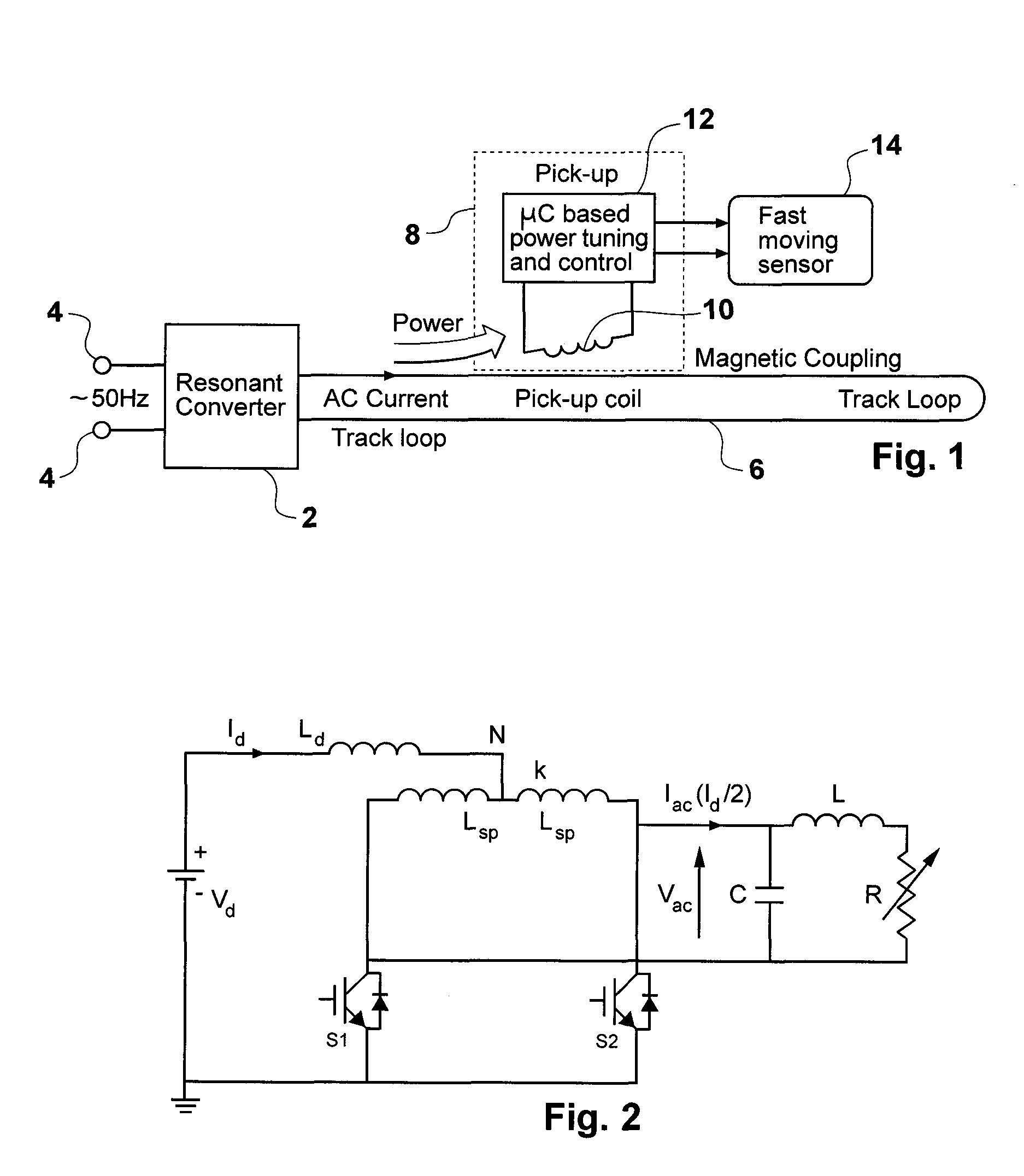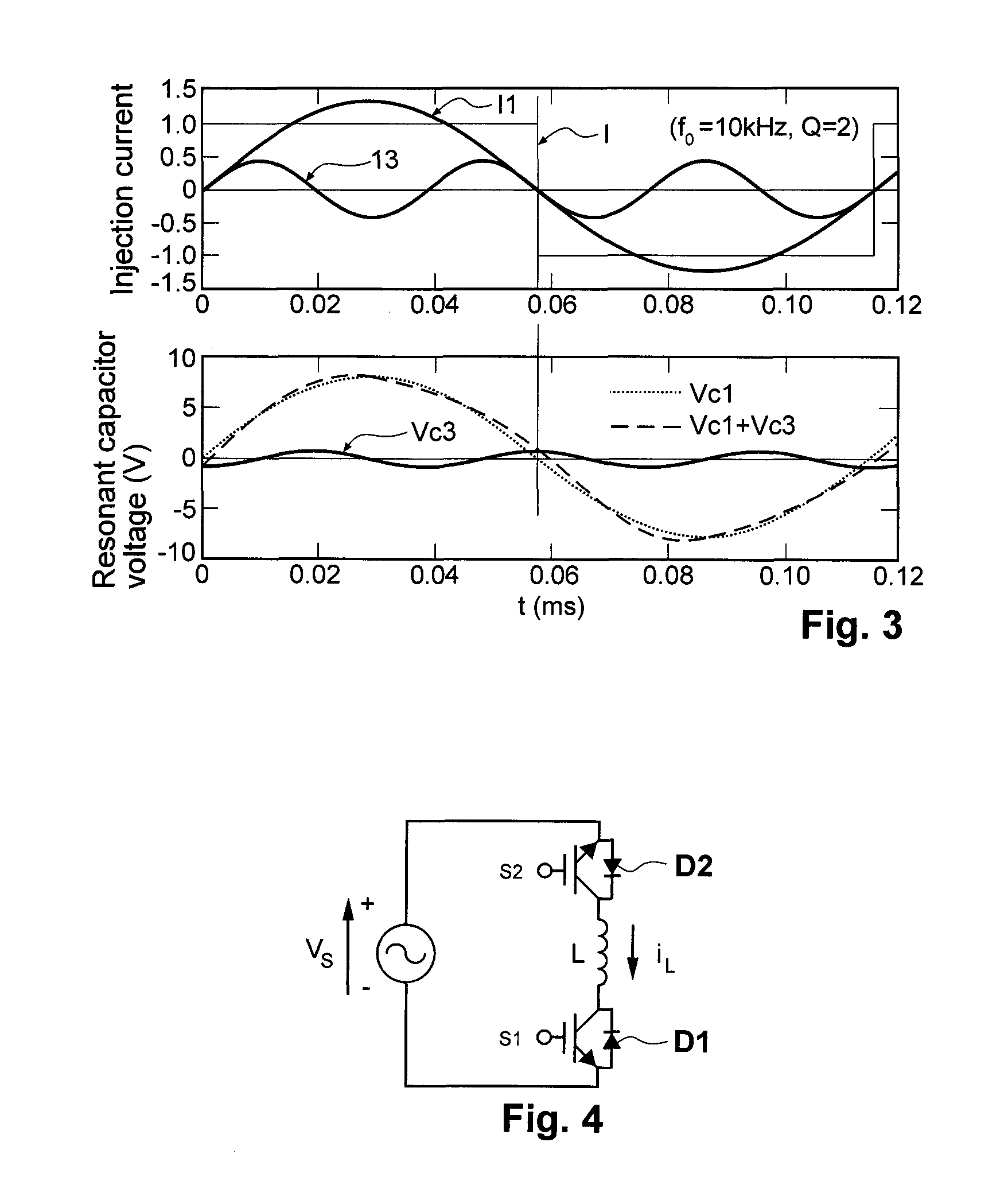Variable reactive element in a resonant converter circuit
a reactive element and resonant converter technology, applied in the direction of electric variable regulation, process and machine control, instruments, etc., can solve the problems of significant reduction of system power transfer capacity, unsatisfactory frequency shift, and complex design
- Summary
- Abstract
- Description
- Claims
- Application Information
AI Technical Summary
Benefits of technology
Problems solved by technology
Method used
Image
Examples
Embodiment Construction
)
[0043]Referring to FIG. 1, the basic structure of an inductively coupled power transfer (ICPT) system is shown. Such a supply is also often referred to as a contactless power supply system. The system generally comprises two electrically isolated parts. The first part consists of a power supply such as a resonant converter 2 which has inputs 4 for connection to a source of electrical energy. In this example the inputs 4 may be connected to a 50 Hz mains supply. The first part also includes a primary conductive path 6 which is supplied with alternating current from the resonant converter 2. The primary conductive path 6 is usually in the form of an elongated “track” or cable along which one or more of the second parts are located. However, the primary conductive path 6 may comprise a coil of conductive material. In this example, the main function of the converter is to supply a nominally constant high frequency (e.g. 40 kHz) AC current in the track loop.
[0044]The second part consist...
PUM
 Login to View More
Login to View More Abstract
Description
Claims
Application Information
 Login to View More
Login to View More - R&D
- Intellectual Property
- Life Sciences
- Materials
- Tech Scout
- Unparalleled Data Quality
- Higher Quality Content
- 60% Fewer Hallucinations
Browse by: Latest US Patents, China's latest patents, Technical Efficacy Thesaurus, Application Domain, Technology Topic, Popular Technical Reports.
© 2025 PatSnap. All rights reserved.Legal|Privacy policy|Modern Slavery Act Transparency Statement|Sitemap|About US| Contact US: help@patsnap.com



